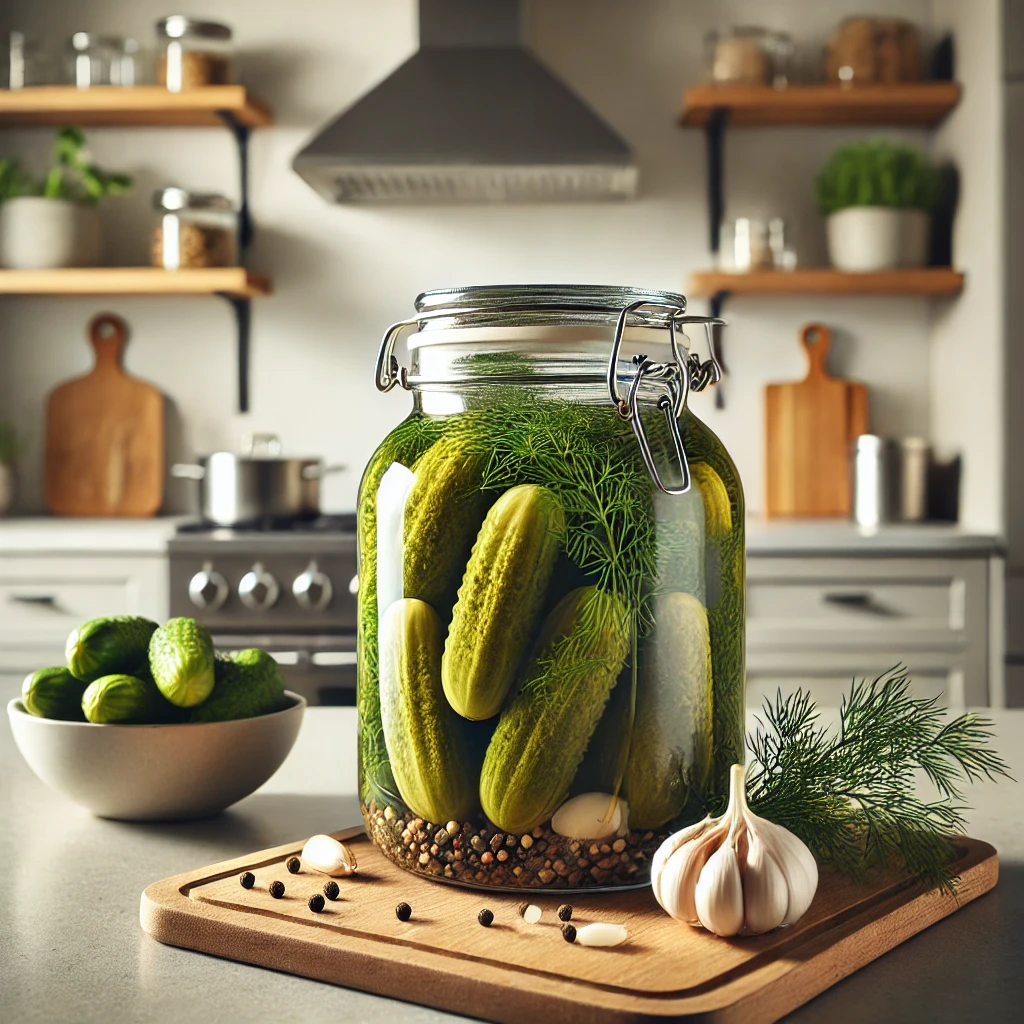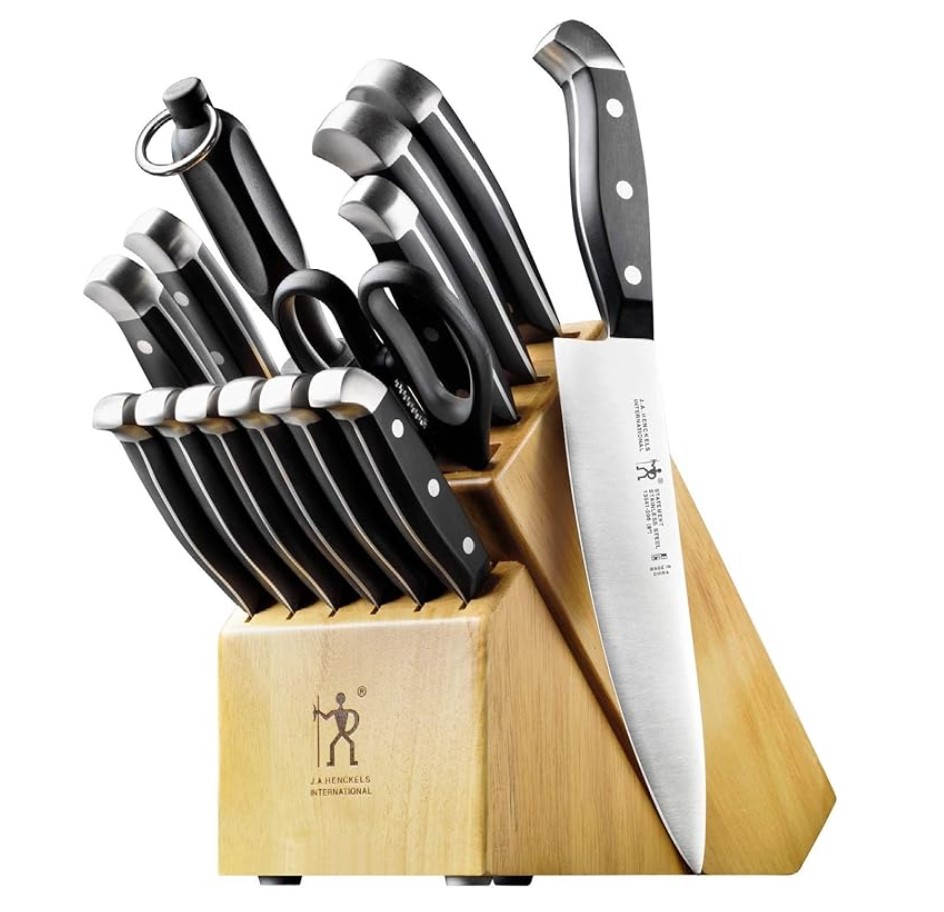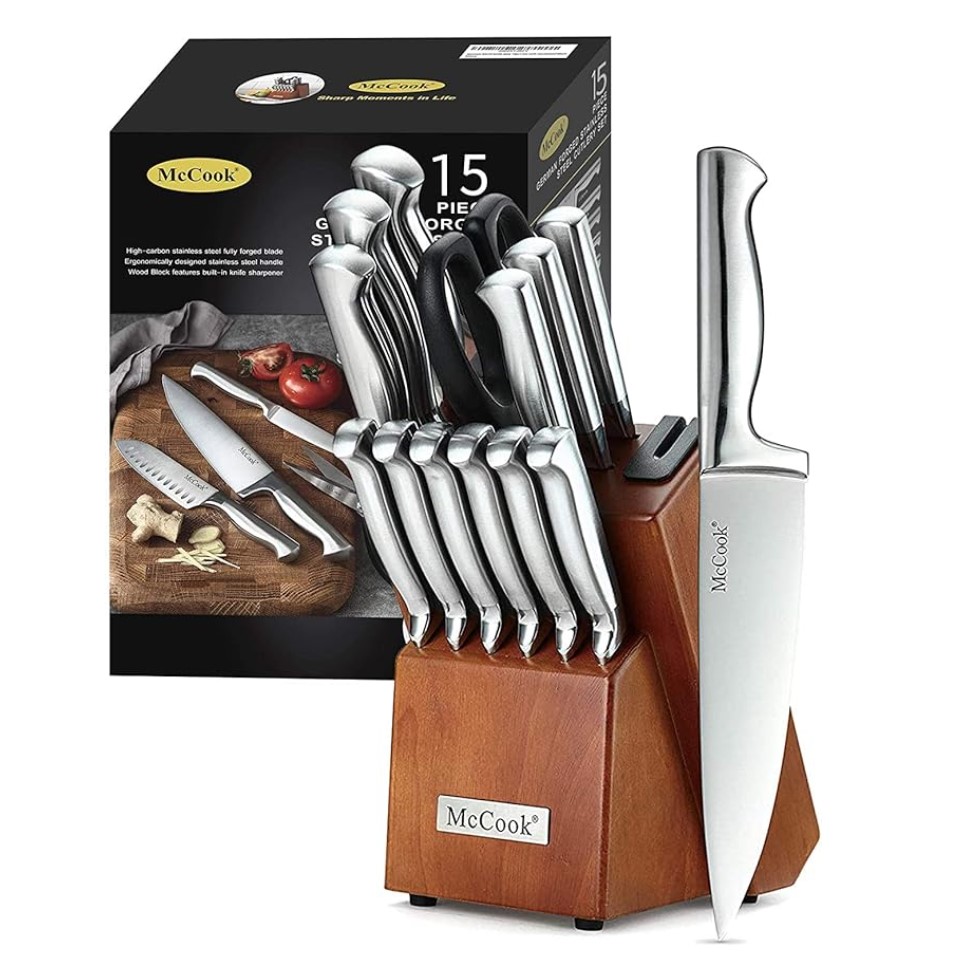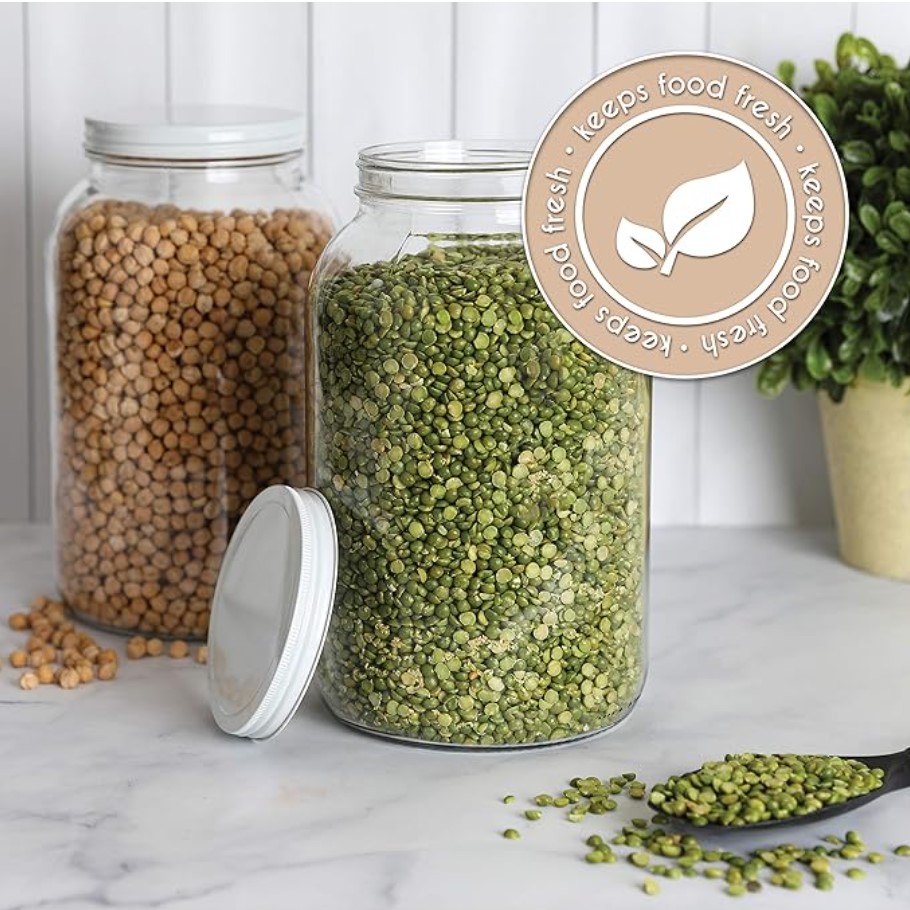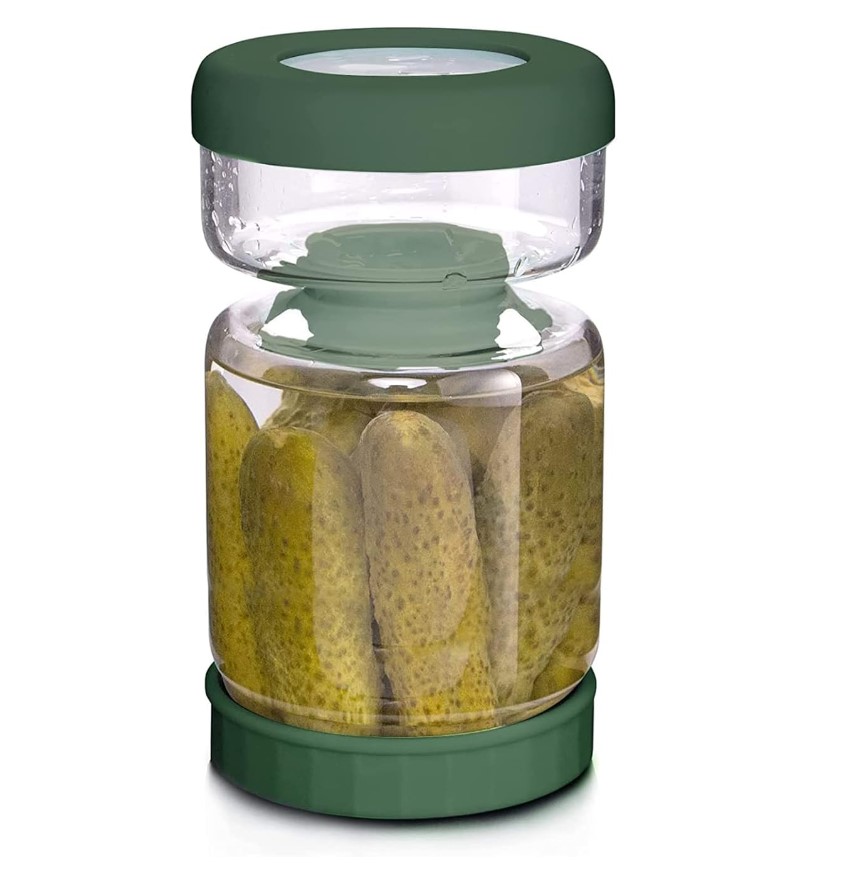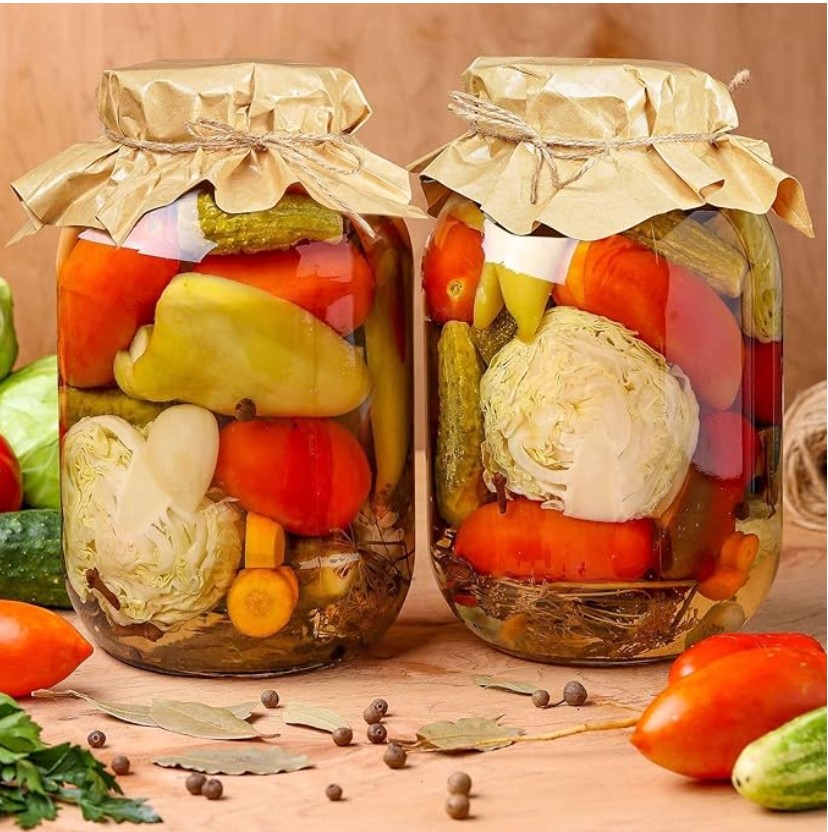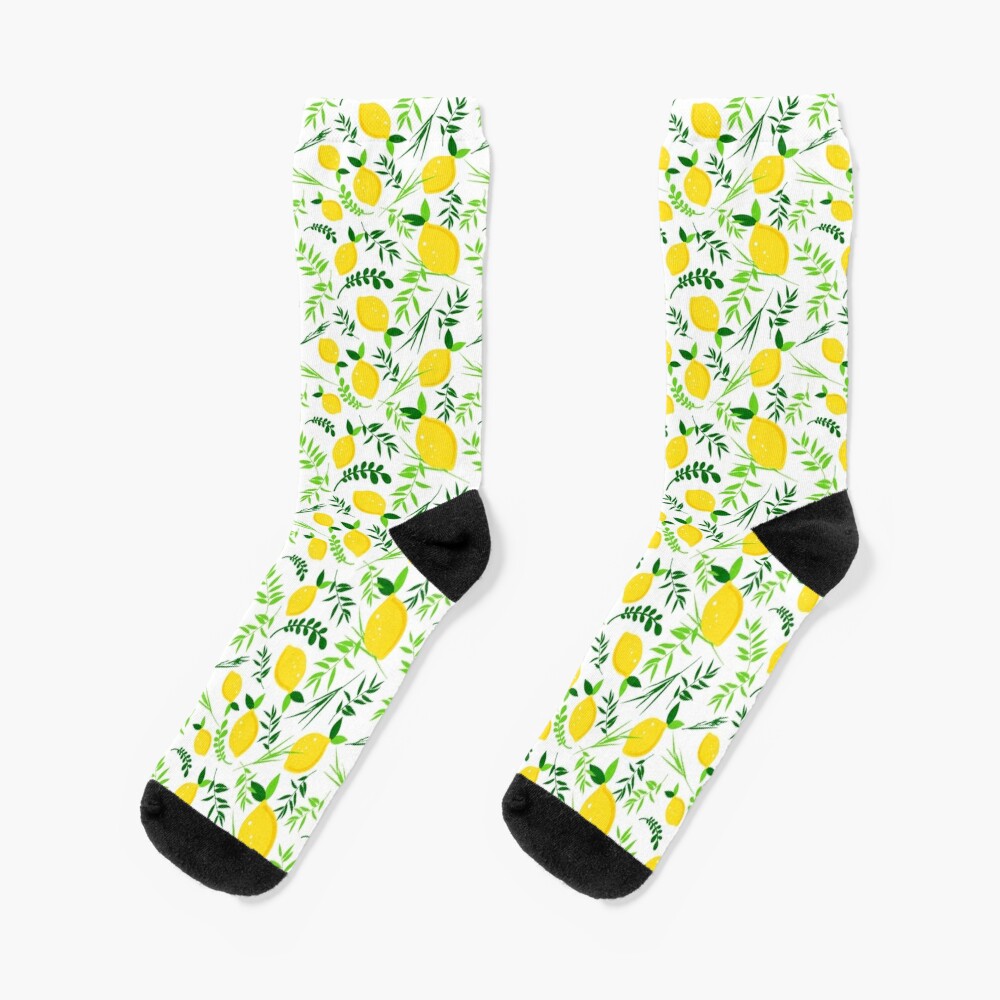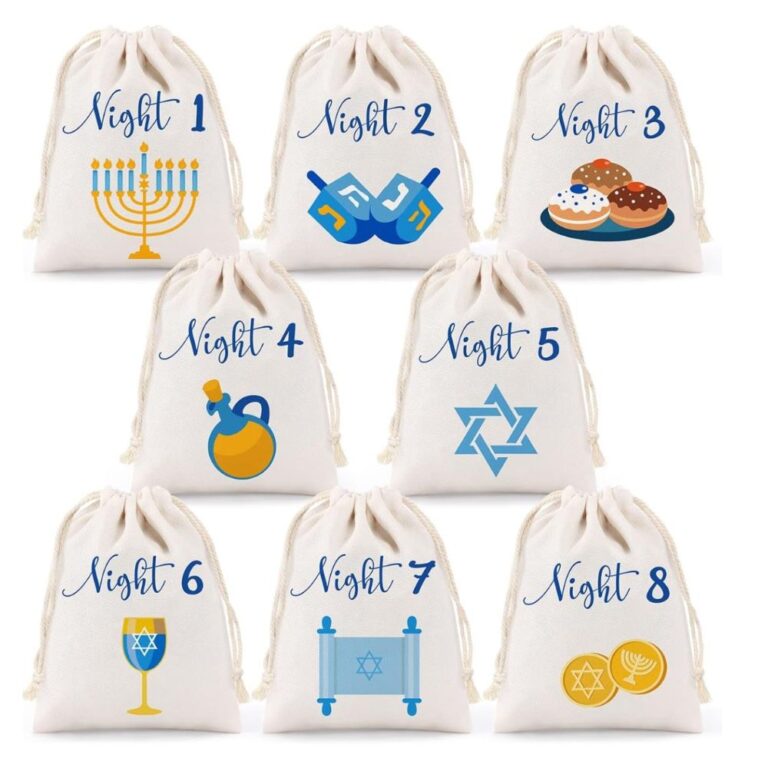- What Makes Pickles Kosher?
- Kosher Pickles vs. Regular Pickles
- The History of Kosher Pickles
- Essential Ingredients for Kosher Pickles
- Step-by-Step Kosher Pickle Recipe
- Fermentation Tips for Crisp Pickles
- FAQs about Kosher Pickles
- You Might Also Like
What Makes Pickles Kosher?
Kosher pickles aren’t just your average dill pickles; they follow a special preparation process. The term “kosher” in this case often refers to the pickling method involving garlic and dill, rather than the food being certified as kosher by religious standards. However, most kosher pickles are also certified kosher and meet the dietary standards set by Jewish law.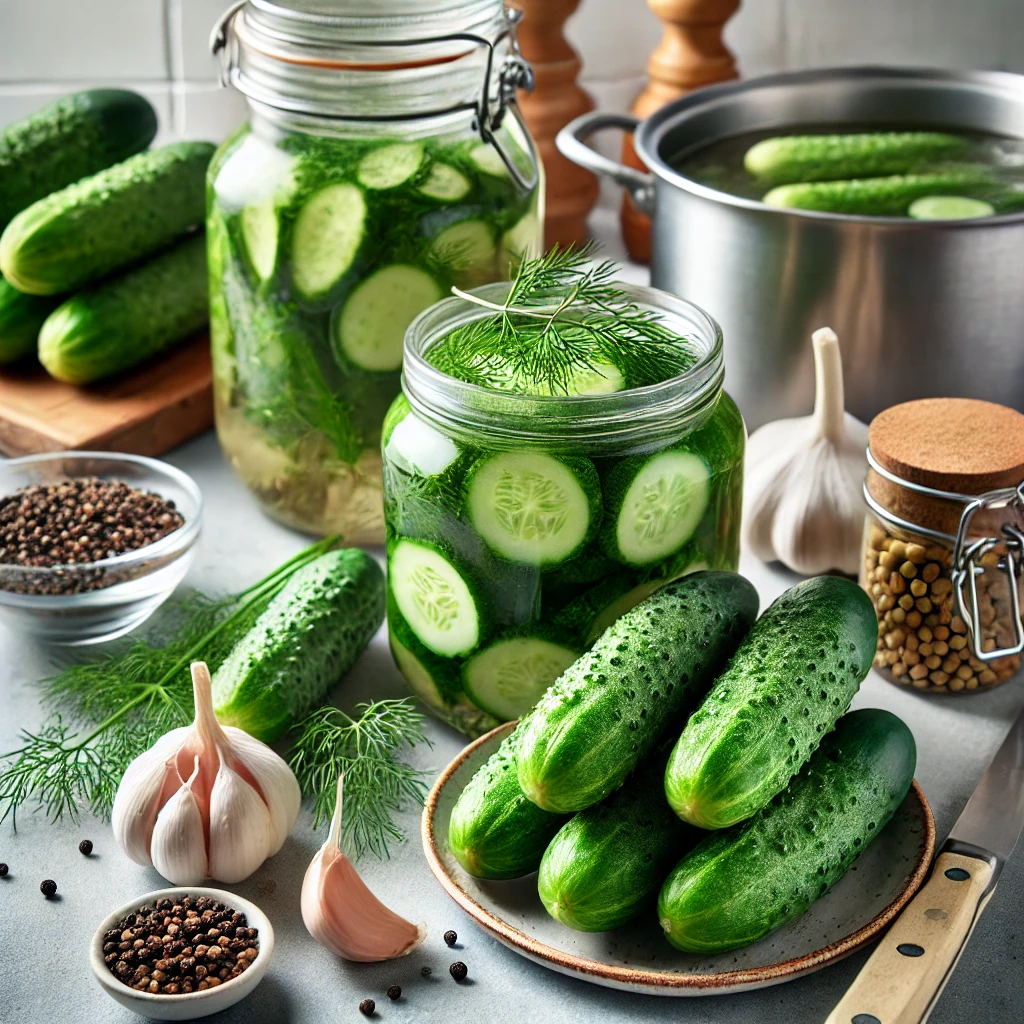

Amazons Most Popular Selling Kitchen Knives – 10000+ Star Reviews
Kosher Pickles vs. Regular Pickles
While all pickles undergo a pickling process involving vinegar or brine, kosher pickles have a distinct flavor profile. The major difference between kosher and non-kosher pickles lies in the inclusion of garlic and dill in the brining process.
Kosher pickles are fermented naturally, without any artificial preservatives, giving them a more robust and tangy taste compared to regular pickles, which may contain preservatives like sodium benzoate. Furthermore, kosher pickles are typically found in refrigerated sections, as they are unpasteurized, while regular pickles are often shelf-stable.
Amazons Most Popular Pickling Jars
The History of Kosher Pickles
Kosher pickles have a long and rich history, dating back to the Jewish immigrant communities of Eastern Europe who brought the recipe with them to the United States in the late 19th century. These immigrants settled primarily in New York, where kosher delis became a staple of the food scene.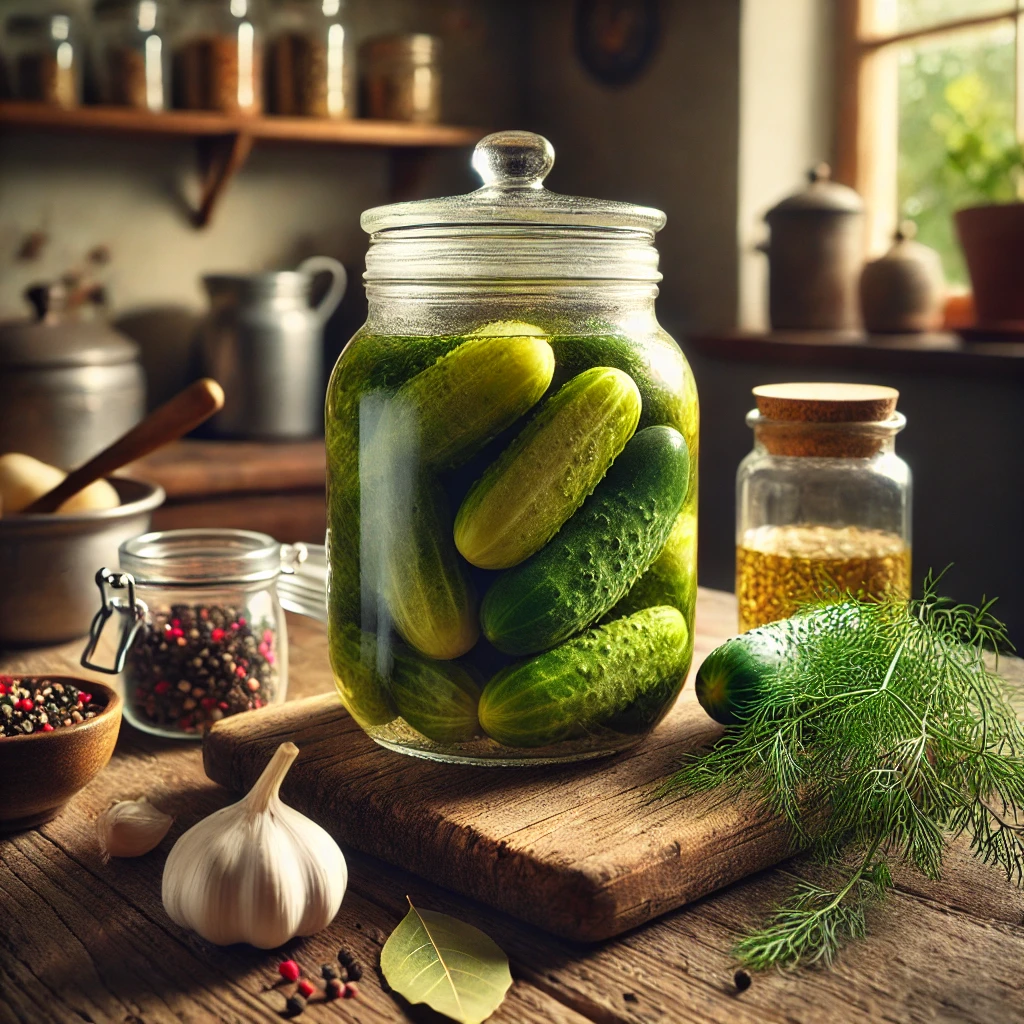

Essential Ingredients for Kosher Pickles
The key to authentic kosher pickles lies in the ingredients. Here’s a breakdown of what you need to get started:
| Ingredient | Quantity |
|---|---|
| Fresh Cucumbers (Kirby variety works best) | 1 kg |
| Fresh Dill | 4 sprigs |
| Garlic Cloves | 4-6 cloves |
| Kosher Salt | 3 tbsp |
| Filtered Water | 4 cups |
| Whole Peppercorns | 1 tsp |
| Mustard Seeds | 1 tbsp |
| Bay Leaves (optional) | 2 leaves |
Step-by-Step Kosher Pickle Recipe
Now that you have all the ingredients, it’s time to make your own batch of delicious kosher pickles! Follow these steps for the perfect pickle.
- Wash your cucumbers thoroughly. If they are waxed, scrub them gently to remove any coating.
- Cut off the blossom end of each cucumber. This is important because the blossom end contains enzymes that can cause pickles to soften.
- Prepare your brine by dissolving kosher salt in filtered water. Stir until fully dissolved.
- Place fresh dill, garlic, peppercorns, mustard seeds, and bay leaves into the bottom of a large mason jar.
- Add the cucumbers to the jar, arranging them as tightly as possible without smashing them.
- Pour the brine over the cucumbers until they are fully submerged. Make sure no cucumbers are exposed to air, as this could cause mold.
- Seal the jar with a lid and leave it at room temperature for 3-7 days. During this time, the cucumbers will ferment and develop their signature flavor.
- Once the pickles reach your desired flavor, refrigerate them to slow down the fermentation process. Your pickles will keep for several months in the fridge.
Fermentation Tips for Crisp Pickles
Achieving the perfect crispness in your kosher pickles can be tricky. Here are some pro tips to ensure your pickles come out crisp and flavorful every time:
- Use fresh, firm cucumbers. Avoid using cucumbers that are too ripe or soft.
- Always use kosher salt, as it doesn’t contain additives like iodine, which can affect the fermentation process.
- Adding a few grape or oak leaves to your jar can help keep pickles crispy, as they contain tannins, which inhibit the breakdown of cucumber cells.
- Check your pickles daily after the third day of fermentation to ensure they don’t over-ferment and lose their crunch.
Frequently Asked Questions About Kosher Pickles
Here are answers to some of the most common questions about making kosher pickles:
Can I use table salt instead of kosher salt?
It’s best to stick with kosher salt for the proper brine consistency. Table salt contains additives that can interfere with the fermentation process.
How long do kosher pickles last?
Once fermented and refrigerated, kosher pickles can last for several months. Just make sure they remain fully submerged in the brine.
Can I add other vegetables to the pickle jar?
Yes! Feel free to add vegetables like carrots, peppers, or cauliflower to your pickle jar for variety. Just ensure they’re sliced thinly to ferment evenly.
You Might Also Like
- How to Make Kosher Dill Pickles at Home
- The Best Kosher Ingredients for Pickling
- Exploring the Differences Between Kosher and Non-Kosher Foods
Conclusion: Enjoy the Perfect Kosher Pickles
With this comprehensive recipe and fermentation tips, you’re well on your way to making the best kosher pickles. Whether you enjoy them as a snack or a side dish, homemade kosher pickles are always fresher and more flavorful than store-bought versions. So grab some cucumbers, whip up a brine, and start pickling today!
FREE JEWISH WALL CALENDAR 2024/5784
The Kosher Hub has designed a beautifully iconic Jewish Calendar with all the important holidays for this coming year that you can download for FREE.




